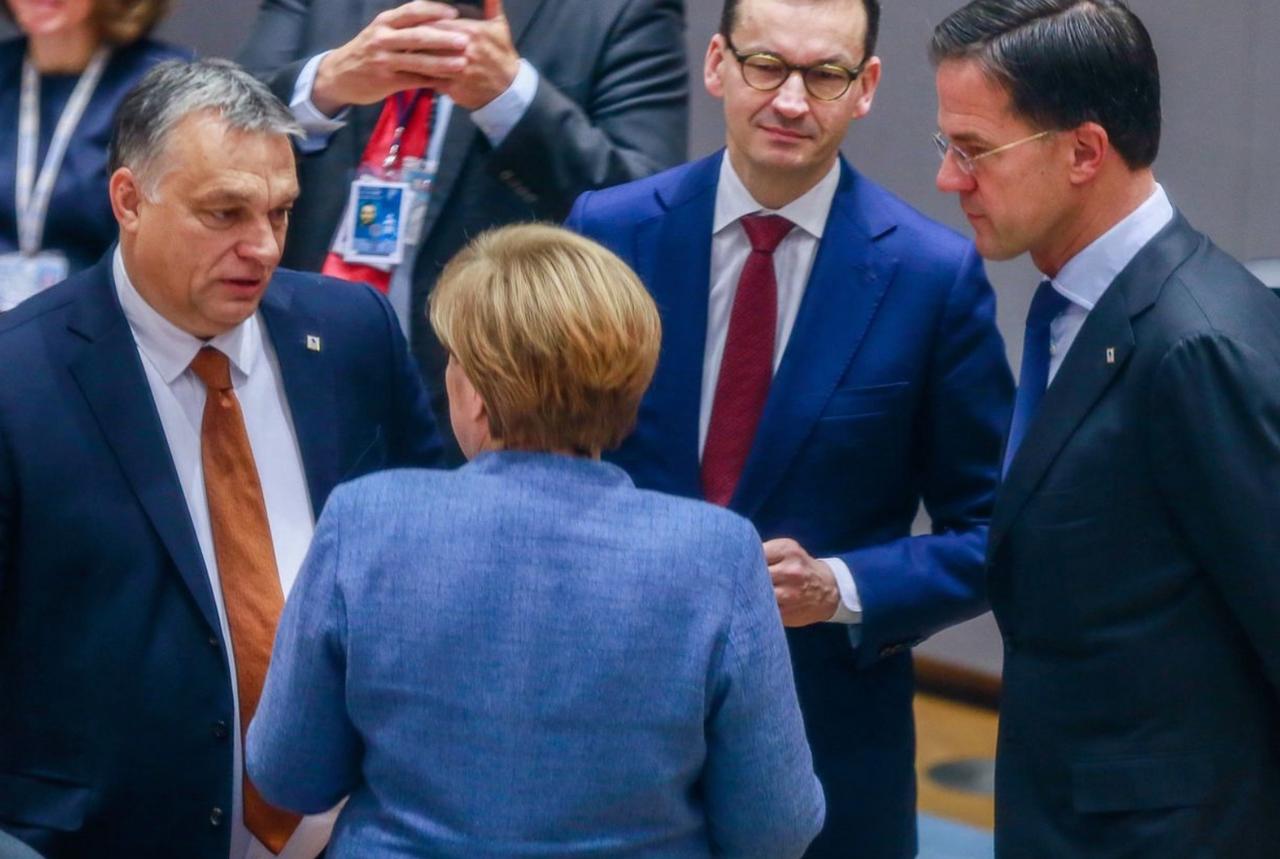Slovenia Backs Hungary & Poland In Standoff With Brussels That Is Delaying COVID Relief
Tyler Durden
Thu, 11/19/2020 – 02:45
Brussels officially has a full-blown populist rebellion on its hands.
After Hungary and Poland blocked the EU’s $900 billion COVID-19 recovery package as well as the seven-year, €1.8 trillion ($2.1 billion) budget over Brussels’ attempt to “force foreign values upon member nations” in a long running dispute over democratic norms, immigration and the “illiberal” tilt of Poland and Hungary.
A clause in the budget would strip Budapest and Warsaw of billions of euros in EU funding if they don’t impose certain measures to strengthen the “rule of law” as Brussels sees fit. Both Hungary and Poland are facing EU “investigations” over allegations they undermined the independence of courts and the media.
The push to bring both Hungary and Poland (which have defied Brussels edicts on immigration and other issues) is being led by German Chancellor Angela Merkel, who is enjoying leadership of the EU alongside her chancellorship of Germany during her last year in power before retiring.
Since the unprecedented EU-wide borrowing package requires unanimous consent to move forward, Poland and Hungary’s opposition will force Merkel and her allies to strike some kind of a deal with Hungary and Poland, if not back down, as Brussels accuses Budapest and Warsaw of subjecting their judiciaries to political influence, in defiance of EU principles.
The right-wing rebels received a boost to their cause on Tuesday morning when Slovenia PM Janez Janša announced his support of Hungary and Poland in their standoff with the EU. In a four-page letter, the close friend of Hungary leader Viktor Orbán slammed Brussels’ “double standard” while evoking the authoritarian experience lived under communism by many countries that joined the EU after 2004, which today refuse to cede parts of their sovereignty.
Slovenia backed the budget in a vote yesterday.
For those who haven’t been closely following the issue, MarketWatch has published a briefing on the history of the dispute, and its implications for the future of the EU, as some of Brussels’ most committed globalists push the possibility of simply expelling Hungary and Poland from the bloc. To be sure, any member-state leaving the EU would likely be interpreted as a full-blown crisis by investors now that the EU has kicked open the door.
- The move by the far-right governments in Budapest and Warsaw comes after months of other EU members’ criticism of measures in both countries subjecting the judiciary to political interference.
- The principle of an EU €750 billion recovery fund was adopted in July in a decision that would allow massive joint borrowing by all member states, for the first time in the EU’s history. Proceeds of the fund would go in priority to countries worst hit by the COVID-19 pandemic.
- The two countries’ decision also prevents the adoption of the multiyear, €1,100 billion EU budget, which had taken months to negotiate amid deep differences among member states over fiscal discipline and public spending.
- German Chancellor Angela Merkel, formally chairing the EU until the end of the year as part of a rotating presidency, is now expected to seek a compromise, since decisions such as joint borrowing must be taken unanimously by the 27 member states.
- The long-drawn-out dispute over human rights, public freedoms and the rule of law in the two countries has exasperated other governments, with Dutch Prime Minister Mark Rutte wondering aloud in September whether an EU “without Hungary and Poland” would be possible.
With drama flaring up across the Atlantic, analysts from Rabobank pointed out that a video summit set for tomorrow, which originally was scheduled to talk about the pandemic, may instead focus on this issue. In a letter to Merkel, Hungary’s Orban said that “there is no deal until there’s agreement on all details.” Whilst that may indicate there is room for negotiation (after all, both countries also look set to receive sizeable funds under the EC proposition), it would likely be on the terms of Poland and Hungary, which are of the opinion that their sovereignty is at stake. So the key question then becomes what the price of sovereignty is. From Brexit we know that price can be very high indeed. Clearly, both member states feel that they have leverage, with many other member states, particularly Italy and Spain, eager to receive EU funds in coming years. Even if some sort of compromise eventually emerges, amidst a resurging virus, this ‘situation’ could well become a ‘risk-off’ element for markets if it drags on for months.
Hungary and Poland opposed the budget and recovery package during a Monday pan-EU meeting where they vetoed the measures, provoking a warning from German ambassador Michael Clauss that their opposition could delay critical COVID-19 recovery funds.
And people complain about the delays to the latest US stimulus plan…
via ZeroHedge News https://ift.tt/36OfD5Z Tyler Durden
